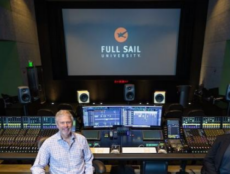
Education Technology
What Is Mastering in Music and Why It’s Important
By eLearning Inside
January 23, 2022
Mastering music is an important part of the production process. Music production has 4 steps – arranging, recording, and mixing mastering. Mastering is the final step of music production and it’s responsible for the overall sound of the song.
What is mastering?
Mastering is the process of taking a mix and making it sound like a commercial release. The mastering engineer applies compression, EQ, and limiting to make the song sound as close to the whole industry as possible. The mastering engineer can prepare your music for a physical release, or just make it sound great on digital platforms. He is like the final filter before your music is released to the world.
10 Reasons to Do Pro Mastering
- You can’t release your song without mastering it. All industry music is mastered and your song will be much quieter than the others.
- Mastering makes your song sound louder and cleaner. It’s the final step in polishing your track and making it radio-ready. Mastering usually makes good mixes sound even better. But it can’t fix bad mixes.
- Mastering is important if you want your song to sound good on different systems. People listen to music with different equipment and it’s important for your song to sound good on as many systems as possible.
- Mastering gives your track a commercial polish. It makes your song sound consistent and professional. You’ll achieve a more consistent level of quality across all your songs. This one is really important for mastering an album because you want the whole album to sound like it’s part of one project.
- Mastering brings your song up to industry standards.
- Mastering can add depth and dimension to your track. It can make the low end sound bigger and the high end sounds brighter. This is especially important for electronic music producers.
- Mastering prepares your song for distribution. If you’re going to release your song on iTunes or Spotify, it needs to be mastered first in order to meet their requirements.
- A good mastering engineer can give you feedback on your mix and suggest ways to improve it. This is a great way to learn about production and get better at mixing yourself.
- Mastering can make your song sound more radio-friendly. Commercial music is mastered to have a certain sound that will appeal to the masses.
- Mastering can add some extra punch to your track. If you want your song to sound louder and more aggressive, mastering is the way to go
How to prepare files for mastering?
Now that you know all the reasons why mastering is so important, it’s time to learn how to prepare your files for mastering.
There are a few things you need to do before sending your song off for mastering:
- Make sure your levels are not louder than -6 dB.
- Remove any unwanted noise from your song.
- Make sure your mix is done well
- Remove any processing from the master bus
- Make sure your Sample Rate is more than 44.1 kHz and bit depth is more than 24 bit
- Export your song.
- Name it correctly and provide a text note with all info needed.
Now that you know how to prepare your files for mastering, it’s time to find a good mastering engineer. There are plenty of them out there, but not all of them are the same. Do some research and find someone who has a good reputation and knows what they’re doing. The last thing you want is for your song to end up sounding worse than when you started.
Featured image: Inga Seliverstova, Pexels.









No Comments